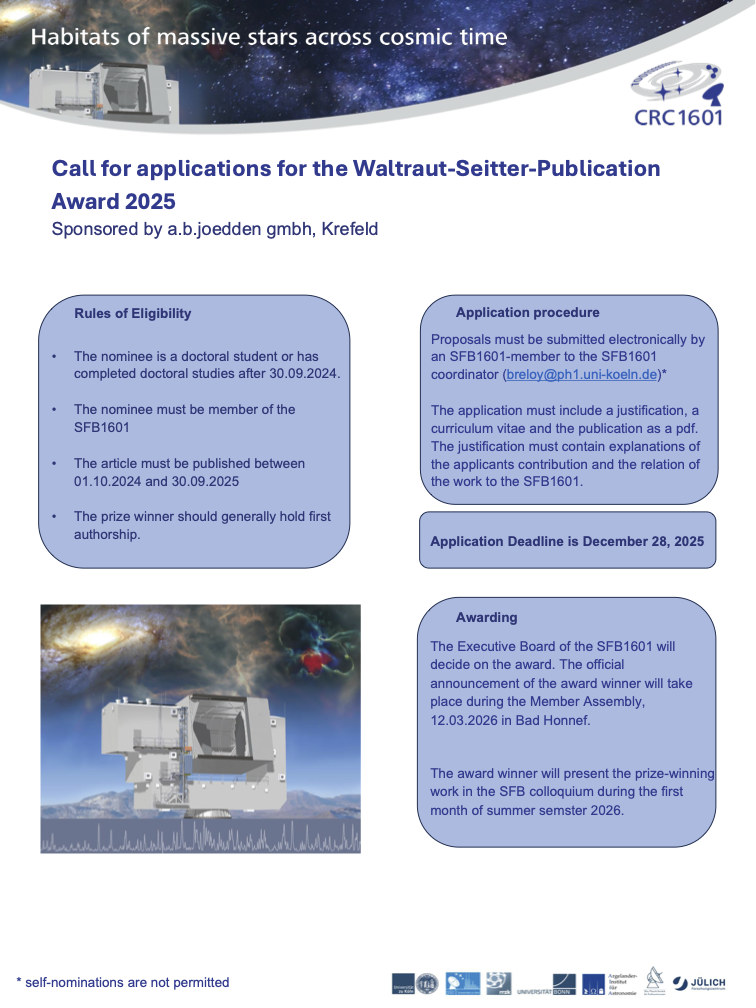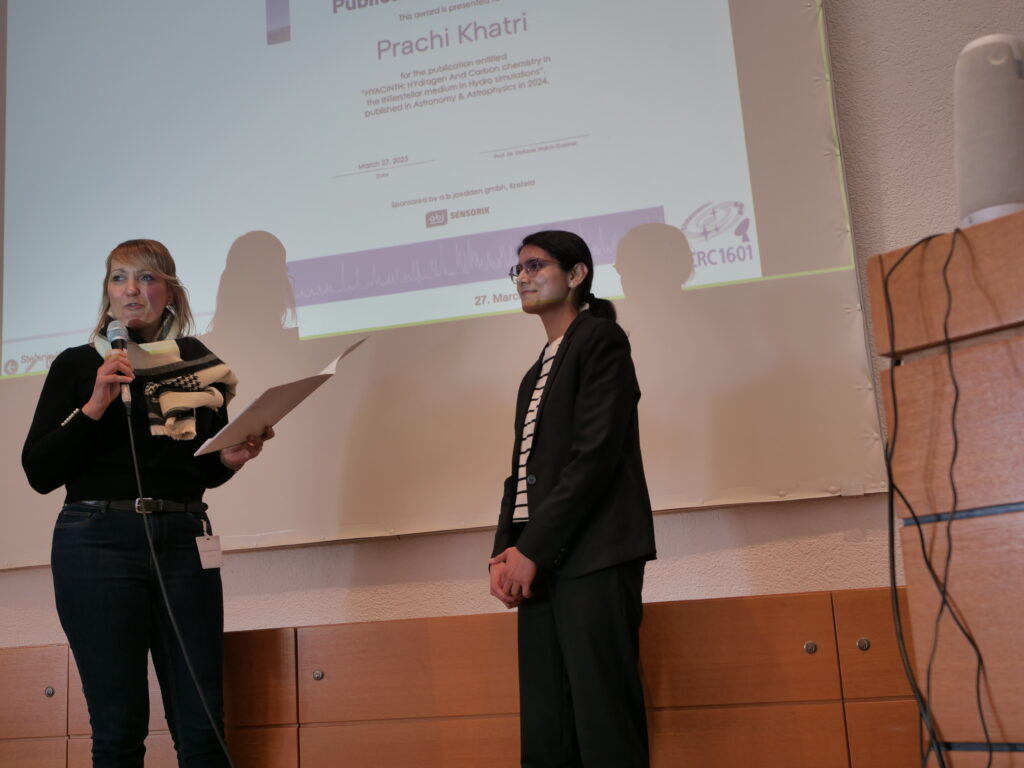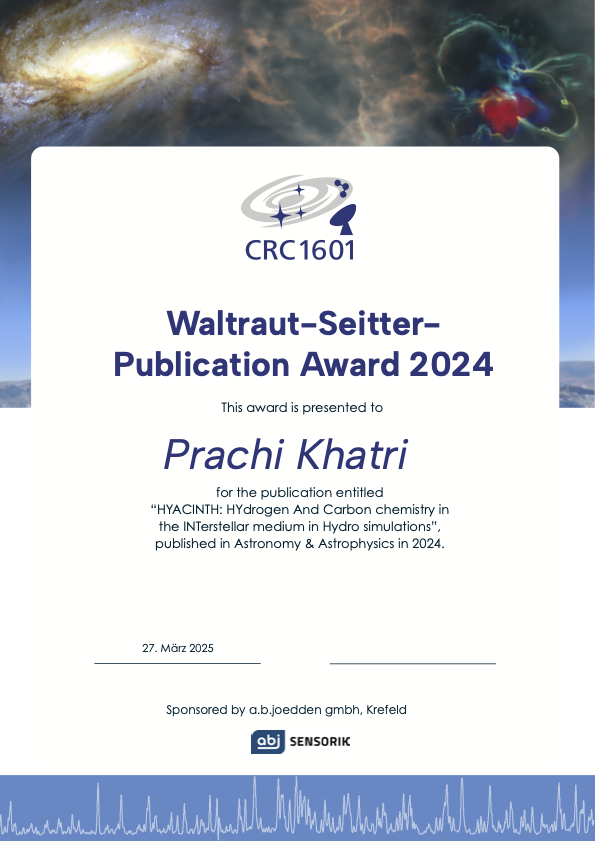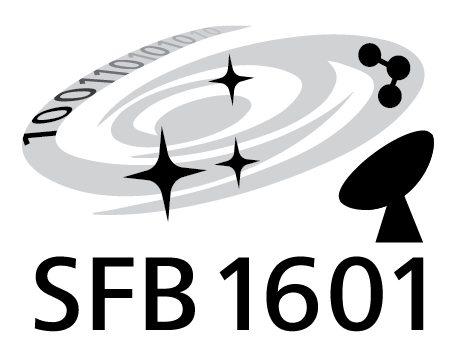Call for nominations!

The SFB1601 is inviting applications by SFB1601-members for the publication prize for early career researchers, which is endowed with €1,000 and sponsored by a.b.joedden gmbh, Krefeld.
As early career researcher are counted doctoral students and young scientists who have completed their doctorate after 30.09.2024.
The publication prize is aimed at all early career researchers who are members of the SFB1601. For the prize to be awarded during the member assembly 2026, the publication must have been published between 1.10.2024 and 30.9.2025. The prize winner generally hold first authorship (including shared authorship).
Applications must be submitted electronically to the SFB1601 coordinator (breloy@ph1.uni-koeln.de) by 28.12.2025 at the latest. Please enclose an informal letter of application stating a justification, a curriculum vitae and the publication as a pdf. The justification must contain explanations of the applicants contribution and the relation of the work to the SFB1601.
The Executive Board of the SFB1601 will decide on the award. The official announcement of the award winner will take place during the Member Assembly, 12.03. 2026 in Bad Honnef.
The award winner will present the prize-winning work in the SFB colloquium during the first month of summer semester 2026.
Waltraut Seitter was a German astronomer and became the first woman in Germany to hold an astronomy chair.
The Waltraut-Seitter-Publication award 2024 is presented to
Prachi Khatri
for the publication entitled
“HYACINTH: HYdrogen And Carbon chemistry in the INTerstellar medium in Hydro simulations”
published in Astronomy & Astrophysics in 2024. The publication describes a new sub-grid model called HYACINTH – HYdrogen And Carbon chemistry in the INTerstellar medium in Hydro simulations – for computing the non-equilibrium abundances of H2 and its carbon-based tracers, namely CO, C, and C+, in cosmological simulations of galaxy formation.
The ceremony took place during the 3rd members assembly of the CRC 1601 in Vallendar on March 27, 2025.
Prachi Khatri: “I am grateful to the SFB Executive Board for recognising this work and my contribution. I thank my supervisors and collaborators for their guidance throughout the project. This research was supported by SFB956 and SFB1601, which enabled a productive collaboration between Cologne and Bonn. Finally, I sincerely thank abj-sensorik for creating this wonderful opportunity, it’s deeply encouraging as a young scientist.“

The award winner will present her work in the SFB colloquium on April 15, 2025.


